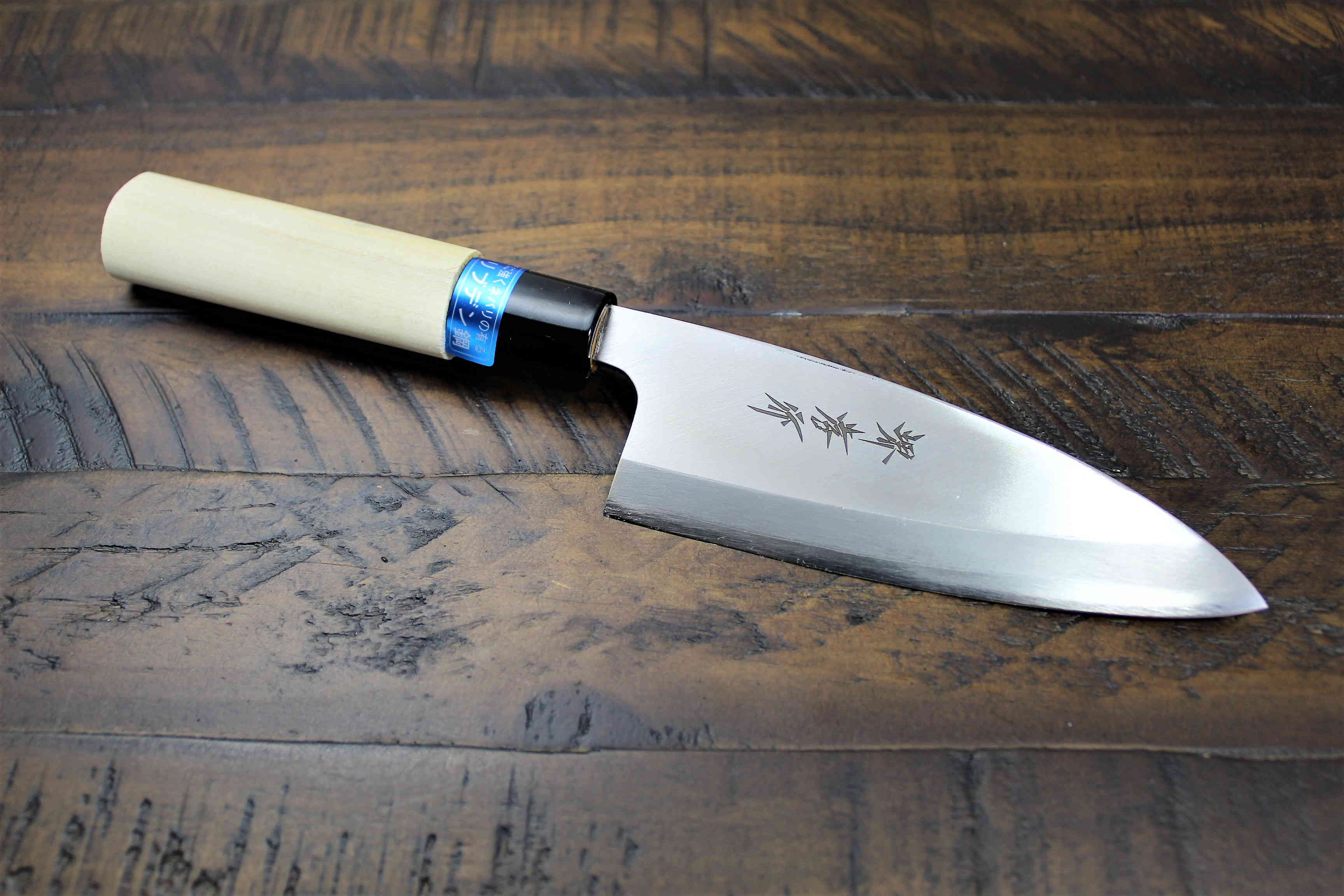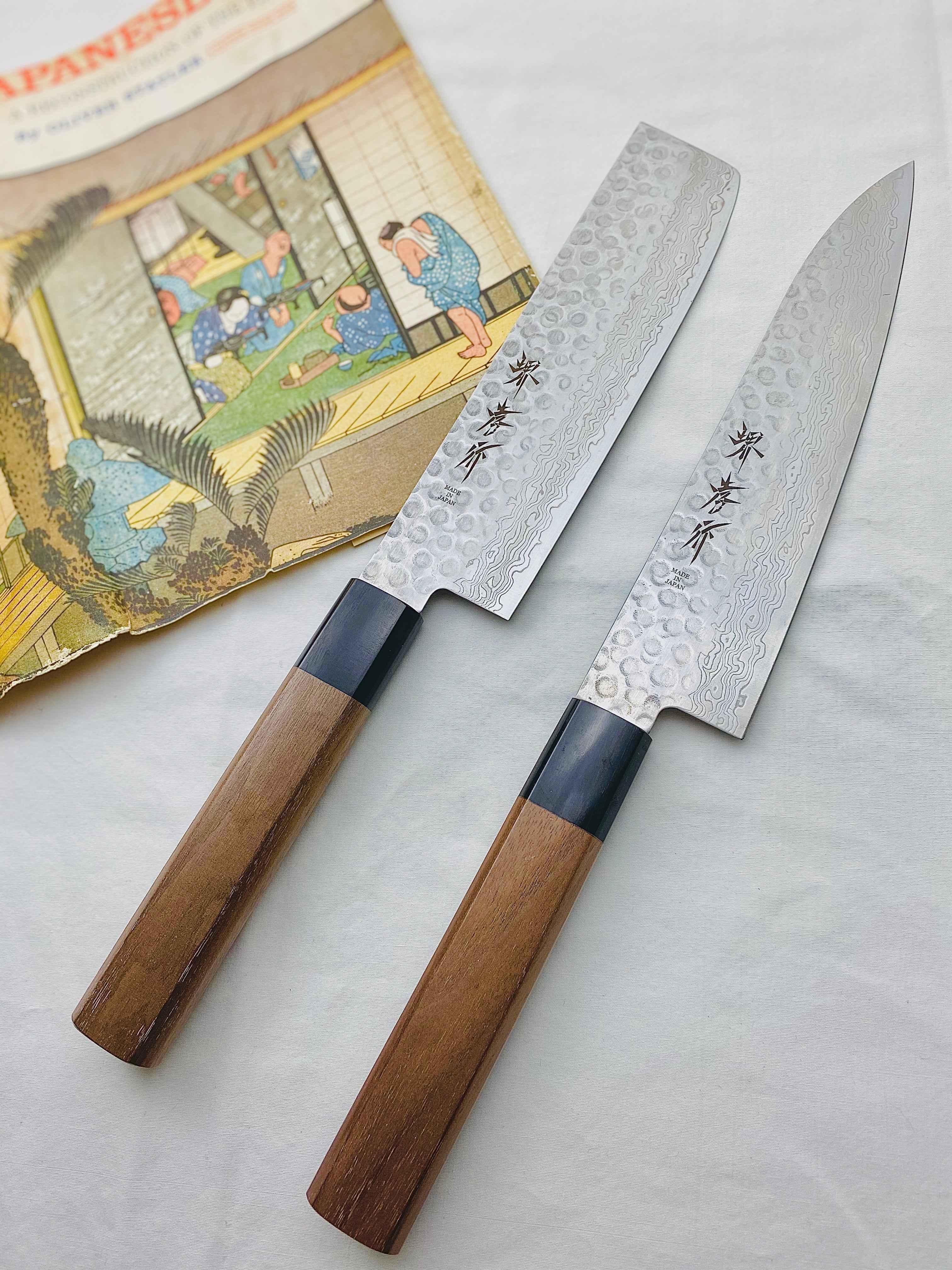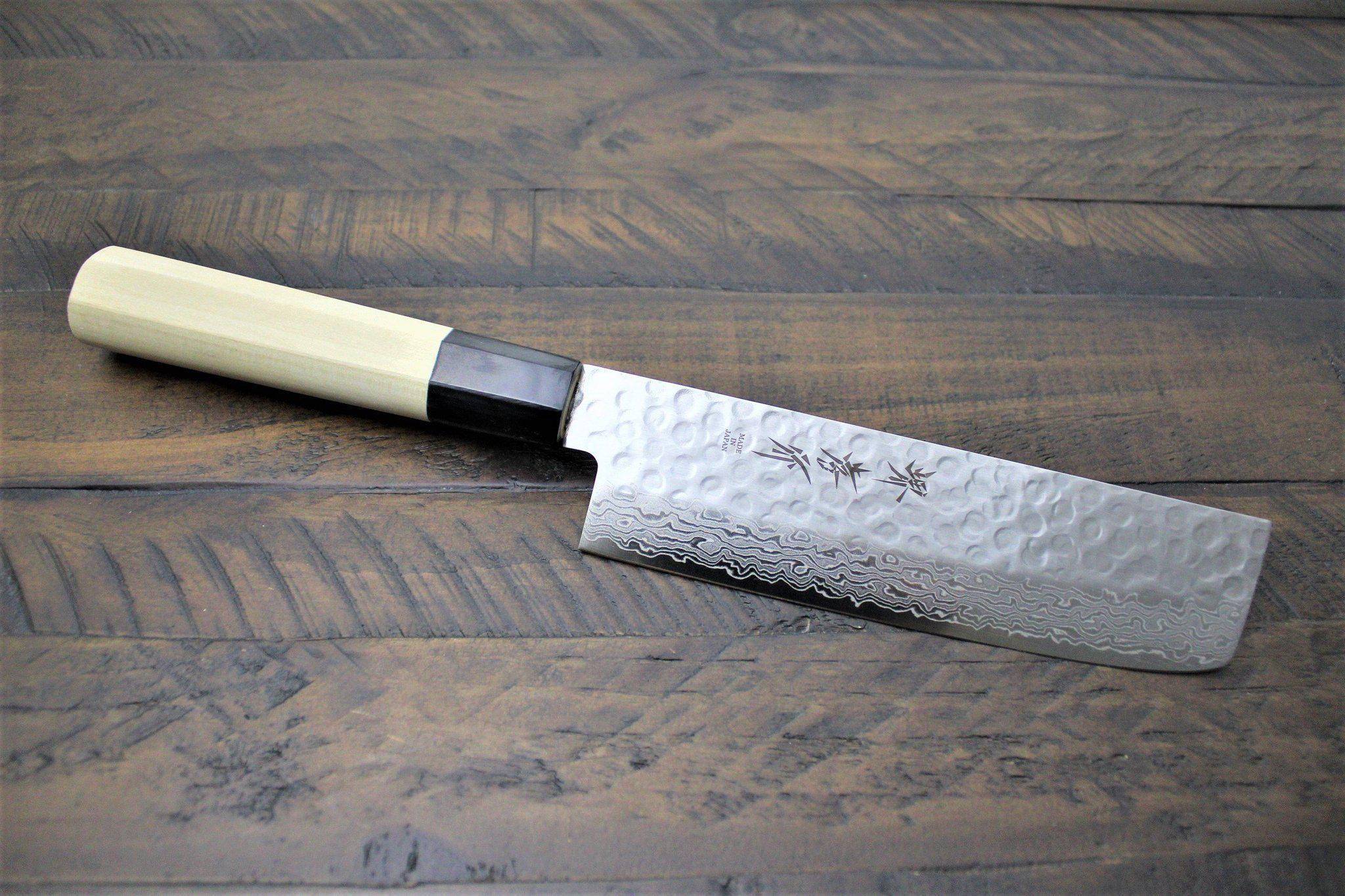
What is a Deba Knife Used For?
If you've been exploring Japanese knives, you might have come across the term "Deba." This traditional knife is widely used in Japan, particularly due to the country's rich seafood cuisine. The name "Deba" translates to "Pointed Carving Knife."
The Deba stands out from other knives, mainly because of its thick blade. Its design allows the knife's weight to handle much of the cutting. This makes it easier to break down fish. While the single-bevel edge is somewhat delicate, the knife excels at portioning whole fish into usable cuts.
Deba Knife Overview
The defining characteristics of a Deba knife are its thick spine and substantial weight. Blade sizes vary from 150mm to an impressive 300mm. Traditional models feature an oval wooden handle, commonly made from Magnolia wood.
The gently curved edge, similar to a Gyuto (Chef’s knife), allows for smooth slicing. Designed for butchery, the Deba is perfect for breaking down whole fish and poultry into manageable portions.
Deba Knife Materials
These knives are designed to be workhorses, so there are a variety of qualities and sizes. You may find them made out of a softer Yasugi steel, such as yellow steel, all the way up through high quality white steel, also known as shirogami.
There are also varieties in molybdenum stainless steel, which minimizes the chances of rusting. Check out our post about stainless steel vs high carbon steel knives for a more in depth look at the different metals.
Deba Knife Uses
The Deba knife is specifically designed for breaking down whole fish, poultry, and cuts of meat that contain small bones or tough tendons. Its thick, heavy blade provides the necessary weight and durability to handle these tasks with precision.
Once the meat is separated into manageable portions, the Deba can also be used to remove skin, trim away excess fat, and extract any remaining bones to create clean, usable cuts such as fillets.
However, since the Deba is primarily a butchery knife, it is best to switch to a more specialized slicing tool—such as a Sujihiki knife or Gyuto knife—once the heavier work is complete. These knives offer finer control for delicate slicing. This makes them a perfect complement to the Deba in a well-equipped kitchen.
Benefits of Deba Knives
The main benefits of using a Deba knife are:
- Weight/thickness of the blade, 8mm
- Shape of the blade
- Tip for boning
- Middle for slicing
- Heel (near the handle) for cutting small bones
- Depth of the blade to the handle
- Giving more room to the fingers while working
Should I Get a Deba Knife?
If you’re interested in butchery or looking to refine your skills in breaking down whole fish and poultry, a Deba knife is a valuable tool. Its sturdy build and thick blade make it ideal for tasks that require precision and controlled force. However, using a Deba properly requires practice, especially since it differs from Western-style knives.
The single-bevel edge, a hallmark of traditional Japanese cutlery, demands a unique cutting technique that may take time to master. Watching instructional videos and dedicating time to hands-on practice will help you develop the proper skills.
While the learning curve may be steep, the Deba's ability to handle intricate butchery tasks with ease makes it a worthwhile addition to any kitchen.
At Hasu-Seizo, we specialize in artisan Japanese knives. Shop our high-quality Deba knives now.



